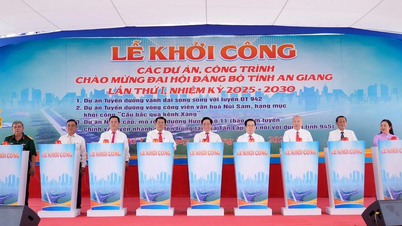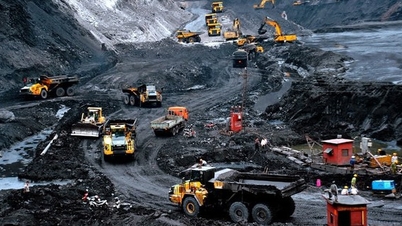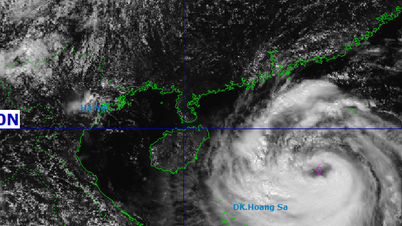Home buyers rush to pay off their loans early
The scale of mortgage defaults and their ultimate revenue impact is hard to glean from official data, but there is ample evidence that they have increased in recent months as borrowers cashed out disappointing investments or raised capital by taking out low-interest business loans, according to Nikkei Asia.
Bankers are signaling their concerns by rolling out strategies to slow down the rush to repay loans and keep mortgages on their books — at least for a little while longer.
“I have never heard of early repayments of this scale before. It will definitely have a negative impact on banks’ earnings,” said Ding Shuang, chief economist for Greater China and North Asia at Standard Chartered.

Chinese banks are facing a new earnings challenge as more homebuyers pay off their mortgages early, threatening lenders with years of lost expected interest income. Illustrative photo
A manager at China Merchants Bank in eastern Jiangsu province said there had been a “clear increase in early mortgage payments after the Lunar New Year” in late January. In response, he said his bank was asking customers to schedule appointments if they wanted to discuss early repayments.
A bank employee at a branch of China Construction Bank in the southern city of Guangzhou said the bank had shut down its mobile phone loan prepayment function after a surge in such requests. Customers need to wait “several months” to book a time slot at a branch where they can make such payments, the employee said.
A 35-year-old employee of an education company in Beijing, who identified herself as Zhang, told Nikkei Asia that she had been waiting more than two months to repay a mortgage debt of about 2 million yuan ($290,000).
Early repayment of home mortgages is beneficial for Chinese banks in that it eliminates the possibility of credit losses. But it also eats into one of the lenders' more reliable sources of interest income.
The end of the real estate "cooling" policy
Less than 0.7% of personal loans, including mortgages, are classified as nonperforming, the same as before the pandemic, Dan Wang, chief economist at Hang Seng Bank of China, wrote in a recent blog post for the Chinese edition of the Financial Times.
Mortgages in China are typically offered at a slightly higher rate than the five-year loan prime rate (LPR). The five-year LPR has fallen to 4.3% from 4.8% at the end of 2019, as the Chinese government tried to cool the overheated property market, causing mortgage rates to fall as well.
As a result, borrowers with older mortgages pay higher interest rates than those with more recent loans. “People feel it’s unfair,” said a branch manager at China Merchants Bank in Jiangsu province.
Borrowers have responded by using a variety of strategies to pay off their mortgages.
Some are buying back wealth management products, which lost value last year as COVID-19 restrictions stifled economic activity. Zhang, the education company employee, said the “poor performance” of her investments was one factor that forced her to withdraw cash and repay her home loans.
Others pay off their mortgages by taking out lower-interest loans intended for other purposes, such as expanding their businesses, even though Chinese authorities ban that practice.
These borrowers are taking advantage of Beijing’s efforts in recent years to encourage banks to lend to small and medium-sized businesses. Since large banks dominate the mortgage business, smaller lenders have competed fiercely for business borrowers, pushing interest rates down.
A bank employee at a Rural Commercial Bank branch in Foshan city told Nikkei Asia that the bank offers business loans to individual consumers at interest rates lower than 4%.
Banks do not release early mortgage repayment figures, but total outstanding mortgage debt fell from 38.9 trillion yuan ($5.67 trillion) at the end of September to 38.8 trillion yuan at the end of last year, according to the People's Bank of China.
Meanwhile, average home prices in 70 major Chinese cities have fallen year-on-year for 10 consecutive months since April 2022, the National Bureau of Statistics said.
“Investment buyers have completely disappeared in the past two years,” said an apartment sales agent surnamed Luo in a Guangzhou suburb.
Source


![[Photo] General Secretary To Lam attends the 8th Congress of the Central Public Security Party Committee](https://vphoto.vietnam.vn/thumb/1200x675/vietnam/resource/IMAGE/2025/10/4/79fadf490f674dc483794f2d955f6045)

![[Infographic] Notable numbers after 3 months of "reorganizing the country"](https://vphoto.vietnam.vn/thumb/1200x675/vietnam/resource/IMAGE/2025/10/4/ce8bb72c722348e09e942d04f0dd9729)





















![[Photo] Prime Minister Pham Minh Chinh chairs meeting to deploy overcoming consequences of storm No. 10](https://vphoto.vietnam.vn/thumb/1200x675/vietnam/resource/IMAGE/2025/10/3/544f420dcc844463898fcbef46247d16)
![[Photo] Students of Binh Minh Primary School enjoy the full moon festival, receiving the joys of childhood](https://vphoto.vietnam.vn/thumb/1200x675/vietnam/resource/IMAGE/2025/10/3/8cf8abef22fe4471be400a818912cb85)































































Comment (0)